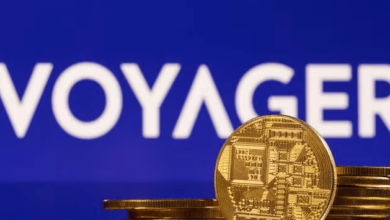Pc Yoy 74.3m Q3 Hp Dell

In the third quarter of the year, the personal computer (PC) market witnessed an unexpected surge in sales, reaching a staggering 74.3 million units year over year (yoy).
This remarkable growth has defied previous projections and showcased the resilience of the PC industry amidst challenging economic conditions.
In this article, we will explore the factors that have contributed to this success and examine the future outlook for the PC market.
The sudden increase in PC sales is a significant development in an era dominated by mobile devices and cloud computing.
Despite predictions of a dwindling demand for PCs, this surge highlights their enduring relevance and continued importance in various sectors.
It is crucial to analyze what factors have led to this unexpected growth and understand how they may shape future trends in technology consumption.
By examining key players such as HP and Dell, who have played pivotal roles in driving these sales, we can gain insights into their strategies and methods that have resonated with consumers.
As we delve deeper into understanding the drivers behind this surge in PC sales, it becomes evident that there are underlying forces at play which challenge conventional notions about technology use.
Unexpected Surge in PC Sales
The third quarter of the year saw an unexpected surge in PC sales, with both HP and Dell reporting a year-on-year increase of 74.3 million units. This resurgence in traditional computing has had a significant impact on laptop sales, as more consumers are gravitating towards PCs for their computing needs.
The rise in PC sales can be attributed to several factors, including the increased demand for remote work and online learning due to the ongoing COVID-19 pandemic. With people spending more time at home, there is a growing need for reliable and powerful devices that can handle various tasks such as video conferencing, content creation, and gaming.
Additionally, advancements in PC technology have made them more appealing by offering improved performance, enhanced graphics capabilities, and larger storage capacities compared to laptops. Furthermore, the affordability of PCs compared to high-end laptops also contributes to their increased popularity among consumers.
Overall, this unexpected surge in PC sales indicates a shift in consumer preferences and marks a potential turning point for the future of traditional computing.
The Resilience of the Personal Computer
One aspect worthy of consideration is the notable resilience demonstrated by the personal computer in recent times.
Despite predictions of its demise due to the rise of smartphones and tablets, the PC market has continued to show strength and adaptability.
Market trends indicate that PC sales have experienced a surge, with a year-on-year increase of 74.3 million units in the third quarter alone.
This unexpected growth can be attributed to several factors, such as the increased demand for remote work and online learning during the COVID-19 pandemic.
Additionally, advancements in technology have made PCs more powerful and versatile than ever before, appealing to a wide range of users.
The resilience of the personal computer lies not only in its ability to withstand challenges but also in its capacity for innovation and adaptation to changing market needs.
As we move forward into an increasingly digital age, it is clear that the PC will continue to play a vital role in our lives, serving as an essential tool for productivity, creativity, and communication.
Factors Contributing to the Success
This discussion will focus on the factors that have contributed to the success of personal computers in recent years.
One key factor is the increased demand for remote work and distance learning, which has led to a surge in PC sales as individuals and organizations rely on these devices for communication and productivity.
Additionally, the growing popularity of gaming and entertainment has also played a role in driving PC sales, as consumers seek high-performance machines for immersive experiences.
Finally, technological advancements and new product releases have further fueled the success of personal computers by offering improved features and capabilities that appeal to a wide range of users.
Increased Remote Work and Distance Learning
Increased remote work and distance learning have become the new normal for many individuals, as they navigate through the challenges posed by the ongoing global pandemic. This shift has had a significant impact on mental health, as people face increased isolation, blurred boundaries between work and personal life, and heightened stress levels.
The lack of social interaction and physical presence can lead to feelings of loneliness and anxiety. Additionally, the reliance on technology for remote work and distance learning has brought about cybersecurity challenges. As more people connect to virtual platforms and share sensitive information online, the risk of cyberattacks and data breaches has intensified.
It is crucial for individuals to implement robust security measures to protect their personal information and ensure the safety of their digital activities. Overall, while remote work and distance learning offer flexibility and convenience, it is essential to address the potential negative effects on mental health and stay vigilant against cybersecurity threats.
Demand for Gaming and Entertainment
The demand for gaming and entertainment has witnessed a significant surge as individuals seek immersive experiences and sources of enjoyment during these challenging times.
With the increase in remote work and distance learning, people are finding themselves with more free time at home, leading to an uptick in the consumption of games and entertainment content.
The growth potential for this market is substantial, as it caters to a wide audience that spans across age groups and demographics.
Additionally, the competition within the gaming industry is fierce, with major players like HP and Dell vying for dominance in the PC gaming market.
These companies are constantly innovating their products to meet the evolving needs of gamers, offering high-performance graphics cards, advanced processors, and enhanced audio systems.
As technology continues to advance, the demand for gaming and entertainment is expected to further increase, creating new opportunities for both established players and emerging companies in this competitive landscape.
Technological Advancements and New Product Releases
With the rapid advancements in technology, the gaming industry is akin to a constantly evolving landscape, where new product releases act as catalysts that ignite excitement and anticipation among gamers.
Innovations in computer hardware have played a crucial role in enhancing the gaming experience, with powerful processors and graphics cards enabling higher resolutions, smoother gameplay, and realistic visual effects.
Moreover, the impact of artificial intelligence on personal computers has paved the way for intelligent game adaptations and personalized experiences.
AI algorithms can analyze player behavior to dynamically adjust difficulty levels or generate unique content within games, creating a more immersive and tailored gaming environment.
As technological advancements continue to push boundaries, gamers are presented with a plethora of options that enhance their freedom of choice and empower them to explore new horizons in the world of gaming and entertainment.
See Also Farcaster 30mharleymckeown Theblock
Future Outlook for the PC Market
Despite the evolving technology landscape, it is essential to analyze the future outlook for the PC market.
The COVID-19 pandemic has had a significant impact on the PC market, with remote work and distance learning becoming prevalent worldwide. As people were forced to stay at home, there was an increased demand for PCs to facilitate these activities. This surge in demand led to a temporary boost in PC sales, but it remains uncertain if this trend will continue in the long run.
Additionally, emerging markets play a crucial role in shaping the future of the PC industry. These markets have shown potential for growth due to increasing disposable incomes and a growing middle class. However, challenges such as infrastructure limitations and affordability issues need to be addressed for sustained growth in these regions.
Overall, while the immediate future of the PC market seems promising due to pandemic-driven demand and emerging markets’ potential, continuous analysis and adaptation are necessary to navigate this ever-changing landscape effectively.
Frequently Asked Questions
How does the unexpected surge in PC sales in Q3 compare to previous quarters?
The unexpected surge in PC sales in Q3 presents new challenges and offers future predictions. Analyzing the increase, it is evident that previous quarters did not witness such a remarkable growth.
What are some challenges that the personal computer market has faced in recent years?
In recent years, the personal computer market has encountered several challenges. These include the rise of mobile devices, declining demand for traditional PCs, increased competition from other technologies, and the shift towards cloud computing.
Are there any specific factors that have contributed to the success of PC sales in Q3?
Several factors have contributed to the success of PC sales in Q3. These include increased demand for remote work and learning, technological advancements, competitive pricing, and a shift towards online shopping.
What are some predictions for the future of the PC market?
Future predictions for the PC market suggest continued growth due to technological advancements. As new innovations emerge, such as faster processors and improved graphics capabilities, consumers will be drawn to the freedom offered by these advancements.
How do HP and Dell specifically stand out in the PC market?
HP and Dell stand out in the PC market due to their strong market competition compared to other brands. Factors such as brand reputation, quality, performance, and customer support drive consumers to choose HP or Dell over other PC brands.
Conclusion
In conclusion, the unexpected surge in PC sales during Q3 has left many astounded. Despite the prevailing notion that personal computers were becoming obsolete, it appears that their resilience knows no bounds. The figures of 74.3 million units sold year-on-year demonstrate an astonishing level of success.
Various factors have contributed to this triumph. The shift towards remote work and online learning due to the pandemic undoubtedly played a significant role in driving up demand for PCs. Additionally, the continuous advancements in technology and the availability of more affordable options have further fueled this growth.
Looking ahead, it is intriguing to ponder what lies in store for the PC market. Will this upward trend continue? Or will we witness a swift decline as other devices take center stage? Only time will tell. Nonetheless, one cannot help but marvel at the irony of how a device once thought to be on its way out has made such a remarkable comeback.
As we reflect on these recent developments, it becomes clear that underestimating the power and adaptability of personal computers would be unwise. While smartphones and tablets may dominate certain aspects of our lives, PCs remain indispensable tools for productivity and creativity. It seems that just when we thought they were fading into obsolescence, they have managed to defy expectations and carve out their own niche once again.
In this age of constant technological advancement, it is crucial not to overlook the potential surprises that lie ahead for any industry. The resurgence of PC sales serves as a reminder that nothing should be taken for granted or dismissed too quickly.
So let us embrace this ironic twist in the tale of personal computers with open minds and eagerly await what awaits us next on this ever-evolving journey through technology’s landscape, as innovation and progress continue to surprise and reshape the way we interact with our digital world.




